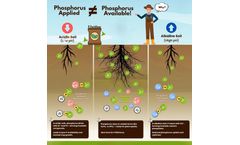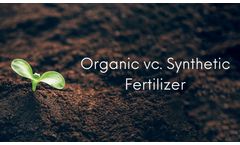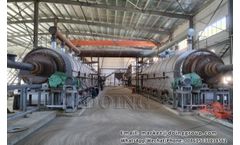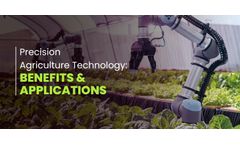Refine by
Agriculture Soil Articles & Analysis
114 articles found
You’ve added the phosphorus. You’ve followed the recommended rates. But your crops are still struggling. What gives? The answer lies beneath your feet—in the chemistry of your soil. The Phosphorus Illusion: More Isn’t Always Better Many growers assume that applying more phosphorus guarantees healthy plant growth. But in reality, phosphorus applied does not automatically ...
ByFERTIZER
Feeding your plants is a fundamental aspect of nurturing a thriving garden, whether you’re aiming for a bountiful harvest or flourishing blooms. However, the choice of fertilizer significantly impacts the health of your plants and the environment. There are two primary types of fertilizers – organic and synthetic. In this article, we’ll delve into the pros and cons of each, ...
Biochar’s properties make it an ideal soil amendment, helping farmers improve soil health while also promoting sustainability in agriculture. ...
Agrochemicals are chemical formulations typically used to control pests, pathogens and provide nutrients to the soil. To meet the growing demand for food, agrochemicals are used in agriculture in large quantities to bridge the gap between food production and consumption. However, the unbalanced application of agrochemicals has led to environmental degradation and ...
In this way, the use of biochar from agricultural waste biomass not only contributes to soil health but also actively combats global warming. ...
It can not only be used as a clean energy to replace traditional coal and reduce environmental pollution, but also as a soil conditioner in agriculture to improve soil fertility and crop yields. ...
However, in order to improve food production, pesticide/herbicide is widely used in agriculture. Over-use of pesticides can lead to hazardous chemicals entering the food chain. ...
Charcoal production is a vital industry with diverse applications, ranging from fuel to soil enhancement. Sawdust and wood chips are two primary raw materials for making charcoal, and understanding their properties, benefits, and processing methods is crucial for optimizing production. 1. ...
Precision agriculture (PA) is the use of advanced technologies to optimize field-level management. By leveraging data analytics, GPS, IoT, and various sensors, precision agriculture enables agronomists to make informed decisions, thereby enhancing crop yield and resource efficiency. This modern approach contrasts with traditional farming methods by emphasizing precision in monitoring, managing, ...
Let's delve into the myriad benefits of producing charcoal from agricultural waste biomass. 1. Waste Valorization Agricultural waste biomass, such as crop residues, straw, husks, and stalks, is abundantly available in agricultural regions worldwide. ...
In this article, we will delve into the myriad benefits and applications of biochar in agricultural practices, highlighting its role in soil health, nutrient retention, and environmental sustainability. ...
Kunz Farm in Beiseker, Alta., is a multifaceted operation focused on a sustainable future. With Pat Kunz at the helm, alongside his family, the farm has embraced soil health as the foundation for long-term success in their wheat, canola, barley, and pea rotation, as well as their cow-calf and feedlot ...
Brad McDougald’s 2,500-acre farm in Drumheller, Alta., experienced a challenging season with a dry spell leading to reduced yields. Yet, through strategic soil health management and the adoption of high-tech solutions from Decisive Farming by TELUS Agriculture, McDougald’s farm outperformed expectations, cementing his commitment to innovative farming ...
The success of the OCP Kenya-OCP School Lab (OSL) project stems from a comprehensive approach to addressing agricultural challenges in Kenya. A review of various surveys on the state of agriculture revealed a connection between low crop yields, reduced incomes, and soil fertility constraints, particularly soil acidity. ...
Benefits of Soil Sensor Innovation: Precision Agriculture: Soil sensors enable precision agriculture by providing farmers with site-specific information about their fields. ...
ByJXCT
Introduction: Soil management is a critical aspect of agriculture, directly impacting crop productivity and sustainability. ...
ByJXCT
Introduction: Soil health plays a crucial role in agricultural productivity and environmental sustainability. ...
ByJXCT
Agriculture is a crucial aspect of our global food supply chain, and proper soil management is essential for sustainable crop production. Portable soil EC detectors have become an invaluable tool for agricultural managers, providing them with real-time soil EC (electrical conductivity) readings that can help ...
ByJXCT
While time-honored technologies still have value, the modern agricultural landscape has a powerful ally: precision agriculture. At the heart of this revolution is a silent orchestra of information-gathering heroes: soil sensor. ...
However, the 21st century has ushered in a new era in agriculture, one driven by data and innovation. At the forefront of this revolution are intelligent soil sensors, small, sophisticated devices that are transforming the way we grow our food. ...










